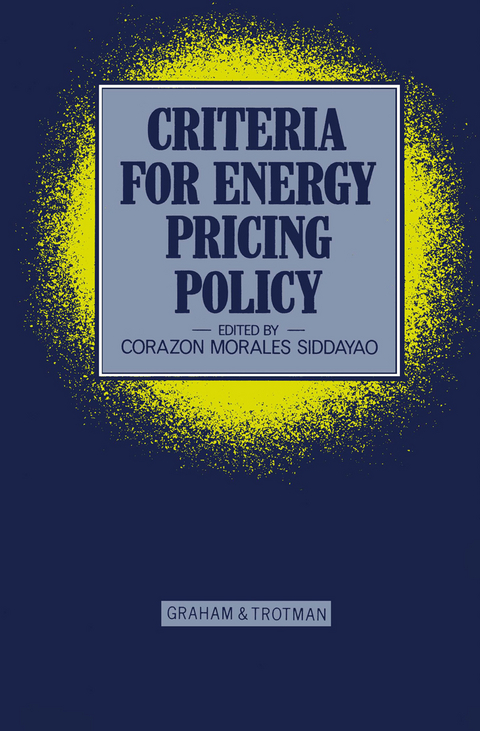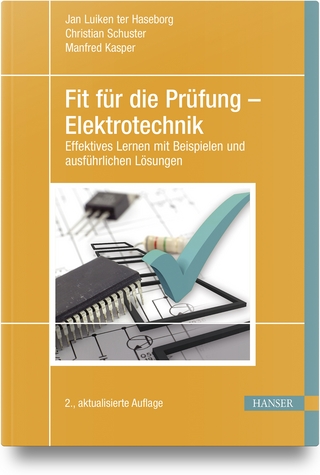
Criteria for Energy Pricing Policy
Springer (Verlag)
978-94-011-9812-7 (ISBN)
1 ENERGY PRICING POLICY FRAMEWORK AND EXPERIENCE IN DEVELOPING COUNTRIES.- Pricing policy and integrated national energy planning (INEP).- Scope and objectives of pricing policy.- Adjustments to efficient prices to meet other objectives.- Recent experience in Asia and the Pacific.- Energy conservation and pricing.- Case Study: Co-ordinated use of pricing and related tools for energy conservation.- Figures.- Tables.- References.- 2 SOCIO-ECONOMIC GOALS IN ENERGY PRICING POLICY: A FRAMEWORK FOR ANALYSIS.- Energy and the economy.- Cost of energy.- Pricing and equity.- Employment.- Growth and other goals.- Energy pricing in rural areas.- Limitations of energy pricing.- Concluding comments.- Figure.- Notes.- References.- 3 EFFICIENCY AND EQUITY CRITERIA IN ENERGY PRICING WITH PRACTICAL APPLICATION TO LDCs IN ASIA.- Producer and consumer prices of energy.- Setting the producer price of energy.- The difficulty of separating producer and consumer prices.- Equity and efficiency conflicts in electricity pricing.- Conclusions.- Tables.- ANNEX 3.1 ESTIMATING THE IMPACT OF FUEL PRICE CHANGES IN THAILAND.- 4 OPERATIONALIZING EFFICIENCY CRITERIA IN ENERGY PRICING POLICY.- Pricing, a tool of demand management.- Basic pricing objectives.- Short-run versus long-run marginal cost pricing.- Efficiency pricing with declining long-run marginal costs.- The economics of discriminatory pricing.- Promotional pricing.- Estimating depletion costs.- The economic value of domestic petroleum resources.- The economic value of imported petroleum fuels.- The economic opportunity cost of funds: a digression.- Reconciling economic and financial costs.- Dealing with inflation and relative price changes.- Figures.- Tables.- ANNEX 4.1 THE ECONOMIC OPPORTUNITY COSTS OF DOMESTIC CRUDE CONSUMPTION FOR AN OIL EXPORTING COUNTRY SUBJECT TO EXPORT QUOTAS.- ANNEX 4.2 THE ECONOMIC COSTS OF UNRELIABLE POWER SUPPLIES.- 5 ENERGY PRICING IN DEVELOPING COUNTRIES: ROLE OF PRICES IN INVESTMENT ALLOCATION AND CONSUMER CHOICES.- Components of an integrated framework for energy pricing.- Product prices, output and investment.- Role of energy prices in consumer choices.- Energy prices and considerations of equity and efficiency.- Reconciling objectives of equity and efficiency.- Summary and conclusions.- Figure.- Tables.- Notes.- References.- 6 SHADOW-PRICING INDIGENOUS ENERGY: ITS COMPLEXITY AND IMPLICATIONS.- Opportunity cost, shadow prices, and the theory of resources.- Should fossil fuel resources be shadow-priced and pegged?.- Summary.- Figure.- Tables.- Notes.- References.- APPENDIXES.- APPENDIX I FINAL REPORT OF THE WORKSHOP.- I. Organization of the Meeting.- II. Proceedings.- APPENDIX II ANALYSIS OF THE ENERGY PRICE PROBLEM IN CHINA Huang Zhi-jie.- APPENDIX III ENERGY PRICING IN NEPAL S. N. Sharma.- LIST OF PARTICIPANTS.- ABOUT THE AUTHORS.
| Zusatzinfo | 1 Illustrations, black and white; X, 248 p. 1 illus. |
|---|---|
| Verlagsort | Dordrecht |
| Sprache | englisch |
| Maße | 155 x 235 mm |
| Themenwelt | Technik ► Elektrotechnik / Energietechnik |
| ISBN-10 | 94-011-9812-8 / 9401198128 |
| ISBN-13 | 978-94-011-9812-7 / 9789401198127 |
| Zustand | Neuware |
| Haben Sie eine Frage zum Produkt? |
aus dem Bereich


